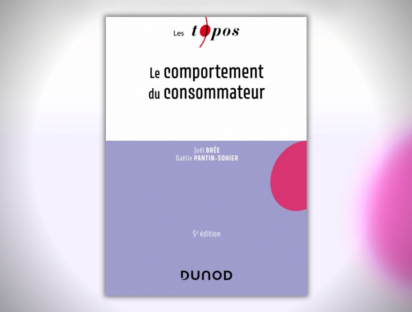A recent column by economist Stuart Kirk in the Financial Times suggests that hypocrisy has the value of a principle. Masking reality, concealing one’s opinions or intentions, double-dealing – all manifestations of hypocrisy – would not only be facts, but also, at least in certain contexts, “duties.” A disturbing, counter-intuitive view that David Hume addressed (and refuted) in his Enquiry Concerning the Principles of Morals.

“Trading and modern economies are predicated on hypocrisy,” says Stuart Kirk, but “we are all sometimes hypocritical in similar ways. Hating our employer but loving the pay. Criticising bosses behind their backs,” and so on – Sirk offers other examples from the world of business to support his thesis (1).
However, his assertions, although presented in a stimulating way, have the appearance of commonplaces, i.e. commonly accepted ideas that come easily to mind without the need for elaborate justification.
Hypocrisy as commonplace is one of the ingredients of the “separation thesis” proposed by the philosopher Edward Freeman in the field of business ethics. This thesis asserts that the morality of commercial economic life is less demanding than the morality of ordinary life (a morality based on unconditional principles), which is consistent with the belief that economic activity is separate from other areas of life because it is governed by specific rules (2).
To the question “What explains our tolerance of hypocrisy in business and finance?,” Kirk does not appeal to the separation thesis but to the power of money (“Money makes the world go round”) and the supposed ability of economic actors to deceive others (“Companies are good at fooling everyone”).
The second response – the ability to deceive others – suggests that economic actors are essentially motivated by self-interest. The underlying thesis seems to be that, behind appearances (an interest in the common good, corporate ethics and CSR, the defence of human rights, environmental protection, etc.), every one of their actions results from a selfish principle.
David Hume argues strongly against this principle, which he says is “supposed to prevail among many,” in the manner of the commonplaces we were talking about a moment ago.
In the second appendix to his Enquiry Concerning the Principles of Morals, devoted to self-love, Hume begins by stating two related principles that seem incompatible with the hypothesis of pure altruism or genuine sincerity of feeling. These principles give hypocrisy and the various forms of lying and dissimulation an essential role in the social life of human beings.
The first, which deals with the lies and concealment that lie behind virtues and manifestations of the good, is in the vein of Kirk’s words:
“All benevolence is mere hypocrisy, friendship a cheat, public spirit a farce, fidelity a snare to procure trust and confidence; and that, while all of us, at bottom, pursue only our private interest, we wear, these fair disguises, in order to put others off their guard, and expose them the more to our wiles and machinations.” (3)
The second principle is based on the assumption that the sole motive for our behaviour is self-love, i.e. “concern for our own happiness and preservation.” Even if we sincerely believe that we are willing to do good for others, it is self-love that is at work, even without our knowing it:
“Whatever affection one may feel, or imagine he feels for others, no passion [“what we today would call emotions, feelings, and desires,” including “some instincts of unknown origin” (4)] is, or can be disinterested; […] the most generous friendship, however sincere, is a modification of self-love; and […], even unknown to ourselves, we seek only our own gratification, while we appear the most deeply engaged in schemes for the liberty and happiness of mankind.”
According to Hume, the egoistic theory is too simplistic and does not take into account the reality of our feelings and moral dispositions: love and friendship, benevolence and generosity are so present in our lives and in our language that we must assume that they have a basis in human nature (for example, in a “moral sense”) rather than being the products of a love of self “twisted and moulded, by a particular turn of imagination, into a variety of appearances:”
“The hypothesis which allows of a disinterested benevolence, distinct from self-love, has really more simplicity in it […] than that which pretends to resolve all friendship and humanity into this latter principle.”
Hume’s argument takes two other forms based on his philosophy.
Firstly, by virtue of his thesis that “reason is, and ought only to be the slave of the passions, and can never pretend to any other office than to serve and obey them,” interest (or calculation, reason) cannot produce passions such as benevolence and generosity (5). It is true that we “may flatter [our]self” (i.e. hypocritically believe) that we have done something out of generosity when it was selfish interest that was motivating us. But there are many cases where generosity is the sole motive for our actions, with selfish interest playing no practical role (6).
Secondly, since all actions are produced by passions, self-love itself depends on passions that are constitutive of our nature, which runs counter to the idea that egoism is the primary inclination of human nature. For example, self-interested passions such as the desire for fame or power are based on “original propensities:”
“Nature must, by the internal frame and constitution of the mind, give an original propensity to fame, ere we can reap any pleasure from that acquisition, or pursue it from motives of self-love, and a desire of happiness. […] Were there no appetite of any kind antecedent to self-love, that propensity could scarcely ever exert itself […].”
Hume’s arguments against the idea that the world is governed by a selfish principle obviously do not exclude the possibility of hypocrisy. A few pages before the second appendix of his Enquiry, Hume introduces a character, the “sensible knave,” who not only embodies a subtle and familiar egoism, but is also a type of hypocrite.
This character uses deception to maximise his own self-interest, without undermining the social order (which he himself recognises as important and from which he, like his fellows, benefits) or removing the appearance of honesty that he enjoys in the eyes of others.
Hume tries to respond to this form of rational egoism. He does so by invoking the fact that the sensible knave deprives himself of the possibility of experiencing happiness (he loses “inward peace of mind, consciousness of integrity, a satisfactory review of our own conduct “). The sensible knave is faced with a dilemma: either he manages to get out of his situation, but at the cost of his reputation, or he remains in it, only to discover that he has been “the greatest dupe” and has lost “the invaluable enjoyment of a character, with [himself] at least.”
In short, the egoistic theory on which Stuart Kirk implicitly based his column rests on uncertain foundations. We have invoked Hume to refute it because of the depth of his arguments, but there are many others, contemporary, which are interested in the origins of morality and cooperation. The working hypothesis, which, in Hume’s words, “has really more simplicity in it,” is that hypocrisy is in no way a “principle” of business life.
References
(1) S. Kirk, “Commentary: Corporate hypocrisy doesn’t bother us too much. This is why,” Financial Times, 13 June 2023.
(2) See for example (in French) A. Anquetil, Qu’est-ce que l’éthique des affaires ?, Vrin, 2008.
(3) D. Hume, An enquiry concerning human understanding and concerning the principles of morals, 1777, L. A. Selby-Bigge & P.H. Nidditch (ed.), Oxford University Press, 1975.
(4) R. Cohon, “Hume’s moral philosophy,” The Stanford Encyclopedia of Philosophy (Fall 2018 Edition), Edward N. Zalta (éd.), URL = <https://plato.stanford.edu/archives/fall2018/entries/hume-moral/>.
(5) D. Hume, A treatise of Human Nature, Vol. II: Of the Passions, 1739, L. A. Selby-Bigge (ed.), Clarendon Press, 1888.
(6) D. Hume, An enquiry…, op. cit.
(7) Ibid.




